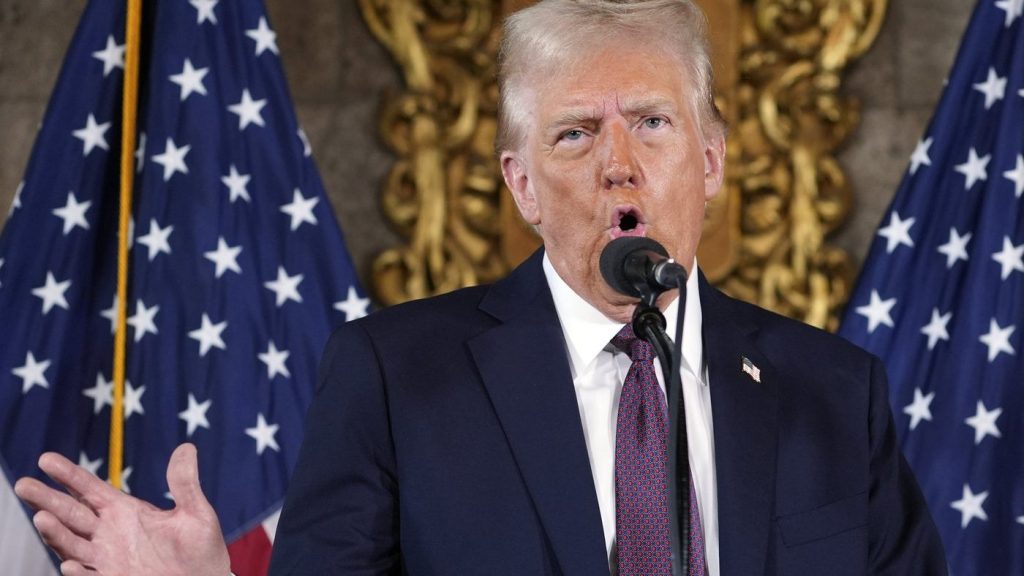In a controversial statement made during his first news conference since being elected, U.S. president-elect Donald Trump expressed intentions to utilize "economic force" to potentially make Canada the 51st state. This remark came as he reiterated his stance on imposing hefty tariffs on imports from Canada and Mexico, criticizing Canada for its military spending and trade practices.
Trump stated, “You get rid of that artificially drawn line and you take a look at what that looks like, and it would also be much better for national security,” referencing the Canada-U.S. border. He further argued that the United States essentially protects Canada, questioning the need for the current national boundaries.
During the conference, Trump maintained that he would enact “substantial” tariffs on Canadian imports once he resumes office. He elaborated on his earlier threats, indicating a potential 25 percent duty on goods from Canada and Mexico unless both nations address the flow of illegal drugs and migrants into the U.S.
In response to Trump's provocative assertions, Canadian Prime Minister Justin Trudeau firmly stated on social media, “There isn’t a snowball’s chance in hell that Canada would become part of the United States.” He emphasized that the citizens and economies of both nations benefit immensely from their partnership in trade and security.
Foreign Affairs Minister Mélanie Joly also reacted to Trump’s comments, asserting that they reflect a “complete lack of understanding” regarding Canada's strengths. Joly highlighted the resilience of Canada's economy and vowed that the country would not yield to threats. These responses demonstrate the Canadian leadership's intent to maintain national dignity and sovereignty in the face of foreign pressure.
In an effort to mitigate potential tariff impacts, Trudeau had previously visited Trump's Mar-a-Lago estate in Florida in November, hoping to dissuade him from following through on his tariff threats. In the wake of these tensions, Canada announced a significant $1.3 billion package aimed at enhancing border security; however, Trump signaled his unwavering commitment to his tariff strategy.
During the news conference, Trump reflected on his previous meeting with Trudeau, reiterating his belief that Canada is supported by U.S. resources. He recounted a purported conversation with Trudeau, where he suggested the Prime Minister was uncertain about Canada's reliance on trade with the United States. Trump asserted, “I can answer it. We are doing it because of habit and we are doing it because we like our neighbours, and we’ve been good neighbours. But we can’t do it forever and it’s a tremendous amount of money.”
Continuing with his controversial narrative, Trump proposed that if Canada were in fact a state of the U.S., such economic ties would be acceptable. He also criticized Canada’s military budget, sharing that he had advised hockey legend Wayne Gretzky to consider a run for Prime Minister, alluding to the need for strong leadership to address these issues.
Trump’s provocative statements regarding Canadian statehood and economic coercion have stirred significant backlash from Canadian officials and the public. These remarks highlight the ongoing complexities of U.S.-Canada relations as both nations navigate trade policies, security partnerships, and social dynamics under heightened political scrutiny.










